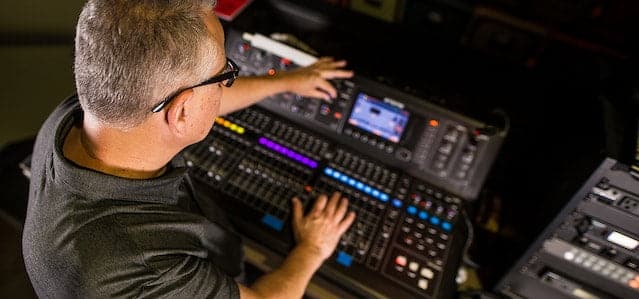Ever wondered why some musicians have a knack for making creative music? Well, sometimes it’s got nothing to do with talent and their technical mindset.
Being a music producer and home studio owner requires more than just technical skills. It demands a unique blend of qualities that can shape the sound and success of artists’ careers.
In this article, we’ll explore the nine essential personality traits that set apart a good music producer from the rest.
Passion For the Craft
Passion is the driving force behind every successful music producer. They live and breathe music, always seeking new inspiration and staying dedicated to their craft.
A passionate music producer infects the entire studio with energy and enthusiasm. This results in a peaceful studio session which reflects in the final productions.
Passionate music producers understand the emotional impact of music and use it to fuel their creative process.
Their dedication to the art form is unwavering, and they continuously strive to improve their skills. This helps to stay updated with the latest trends in the music industry.
This zeal for music is what propels them to success and motivates them to help artists achieve their fullest potential.
Strong Communication Skills
Communication is the key to transforming musical ideas into reality. A good music producer must be an effective communicator.
You’ve gotta be able to understand the artist’s vision and provide constructive feedback.
How to Improve Communication Skills as a Music Producer
- Active Listening: Pay close attention to what others are saying, whether it’s fellow musicians, singers, engineers, or clients. Actively listen to their ideas, concerns, and feedback. This helps you understand their perspective and shows that you value their input.
- Clear Articulation: Practice expressing your thoughts clearly and concisely. Use straightforward language to avoid misunderstandings. When giving instructions or feedback, be specific and avoid ambiguity.
- Empathy and Respect: Put yourself in others’ shoes to understand their feelings and challenges. Treat everyone you work with, including artists and technical staff, with respect and kindness.
- Ask Questions: Don’t hesitate to ask questions if something is unclear. Seek clarification to avoid miscommunication and ensure that everyone is on the same page.
- Positive Tone: Maintain a positive and constructive tone in your conversations. Even when discussing improvements or changes, frame them in a way that encourages growth and collaboration.
- Feedback and Critique: Be open to receiving feedback and critique from others. Learn to accept criticism gracefully and use it as an opportunity to improve your work.
- Non-Verbal Communication: Pay attention to your non-verbal cues, such as body language and facial expressions. Also, be attentive to others’ non-verbal signals, as they can often convey important messages.
By fostering open and honest communication, a producer can establish a collaborative environment that enhances creativity.
A producer’s ability to provide constructive feedback is vital in the creative process. They strike a delicate balance between offering guidance and allowing artists the freedom to express themselves.
Effective communication makes for a positive and collaborative atmosphere in the studio. This then often results in a harmonious working relationship.
Technical Skills
Having a deep understanding of music production software, hardware, and recording techniques is vital for any music producer.
Technical expertise allows music producers to bring innovation to their work. They always strive to experiment with different sounds to achieve the desired production quality.
Technical expertise allows music producers to bring their creative visions to life efficiently.
They are adept at crafting a polished and professional sound. This eventually elevates the overall quality of the music they produce.
Their ability to navigate complex production processes and troubleshoot technical challenges sets them apart as true experts in their field.
Creativity
A good music producer is a creative visionary. They can think outside the box, infusing each project with originality and uniqueness.

Creativity is the driving force behind breakthrough hits, and it sets apart the exceptional producers from the average ones.
Creative music producers are not bound by genre limitations; they push boundaries and blend various styles to craft fresh and innovative compositions.
They have an innate ability to see potential where others may not, resulting in tracks that resonate deeply with audiences.
Social Openness
Music production is a collaborative process that involves working with diverse artists and personalities. Social openness allows a producer to build strong relationships.
Quick tips for becoming more socially open:
- Be curious – Ask questions and learn about other people’s experiences.
- Be open to feedback – Listen to what others have to say about you and be willing to change.
- Be mindful of your own biases – Everyone has biases, but it’s important to be aware of them so that you can challenge them.
- Be respectful – Even if you disagree with someone, treat them with respect.
- Be yourself – Don’t try to be someone you’re not. People will appreciate you for who you are.
Social openness also allows you to understand different perspectives and create an inclusive atmosphere in the studio.
They create an inclusive and supportive environment in the studio, where every team member feels valued and respected.
Social openness encourages open communication, idea sharing, and constructive feedback, fostering a strong sense of unity and creativity.
Leadership Qualities
A successful music producer must be a leader who can guide the entire music production process. They make critical decisions, resolve conflicts, and inspire the team to deliver their best performance.
Effective leadership helps maintain a focused and productive environment in the studio.
To add to this, a music producer leads by example, inspiring and motivating the team to deliver their best work.
They possess excellent organizational skills, ensuring that each aspect of the production process is handled efficiently and on schedule.
Patience
Music production is a complex and time-consuming process. A good producer remains patient during the ups and downs, from recording to mixing to mastering.
Patience allows them to see a project through to its full potential, even when faced with challenges.
Patience allows them to work meticulously on each detail, from recording to mixing and mastering. Eventually, this ensures that every aspect of the music reaches its full potential.
It also helps them navigate setbacks and obstacles, transforming challenges into opportunities for growth.
Realistic
While creativity is essential, a good music producer also stays grounded and realistic. They understand the limitations and constraints of a project and make decisions accordingly.
Being realistic helps maintain a practical approach to achieve the best possible results.
By balancing creativity with pragmatism, a music producer ensures that their artistic visions align with the practical demands of the industry.
This realistic approach enables them to deliver high-quality productions that meet the expectations of both artists and audiences.
Being realistic as a music producer means understanding the challenges of the industry. You also need to set realistic expectations for yourself.
Here are some tips for being realistic as a music producer:
- Understand the music industry
The music industry is a competitive and ever-changing landscape. It’s important to understand the different aspects of the industry, such as how music is distributed, how to get your music heard, and how to build a career as a music producer.
- Set realistic expectations
It’s important to be realistic about your chances of success as a music producer. The odds of becoming a famous and successful producer are sometimes slim, but that doesn’t mean you can’t have a successful career. There are many ways to make a living as a music producer, even if you don’t become a household name.
- Be patient and persistent
It takes time and effort to build a successful career as a music producer. Don’t expect to become successful overnight. Be patient and persistent, and you will eventually achieve your goals.
- Have fun!
If you’re not having fun making your tracks, you’re less likely to stick with it. So make sure you’re enjoying the process, even if it’s challenging at times.
Business Acumen
Being a music producer also involves understanding the business side of the industry. They need to be savvy about contracts, negotiations, marketing, and branding.
A producer with business acumen can navigate the industry successfully and secure opportunities for their artists.
You often have to be a strategic thinker. This will allow you to identify opportunities for artists and navigate the competitive music market successfully.
With business acumen, producers create a pathway for artists’ success beyond the recording studio.
In Summary – Personality Traits of a Music Producer
Becoming a good music producer requires more than just technical skills. It’s about passion, creativity, leadership, and effective communication that makes a lasting impact.
By embodying these personality traits, a music producer can create a transformative experience for artists and leave a mark on the music industry.
FAQs
What qualifications are needed to become a music producer?
While formal education is beneficial, passion and hands-on experience in music production are equally important. Many successful producers start as self-taught individuals with a deep love for music.
Can introverted individuals be good music producers?
Yes, introverts can bring a unique perspective and deep understanding to their work. What matters most is their ability to communicate effectively and create a collaborative environment.
How do music producers handle creative differences with artists?
Good producers navigate creative differences with empathy and open dialogue. They find common ground that benefits the overall project.
Do music producers only work with famous artists?
No, not necessarily. Music producers often work with both emerging and established artists. Their goal is to bring out the best in each artist and elevate the quality of the music.
Is music production a lucrative career?
Yes, music production can be financially rewarding, especially when a producer works on successful projects. However, it requires dedication, hard work, and continuous networking to establish a sustainable career.

Mike is a skilled musician, guitar technician, and music producer with a passion for audio and gear. He excels in teaching guitar, editing podcasts/videos, and creating captivating soundscapes using cutting-edge hardware, software, and plugins. Mike’s talent and commitment make him highly sought-after in the industry, inspiring fellow musicians worldwide.


